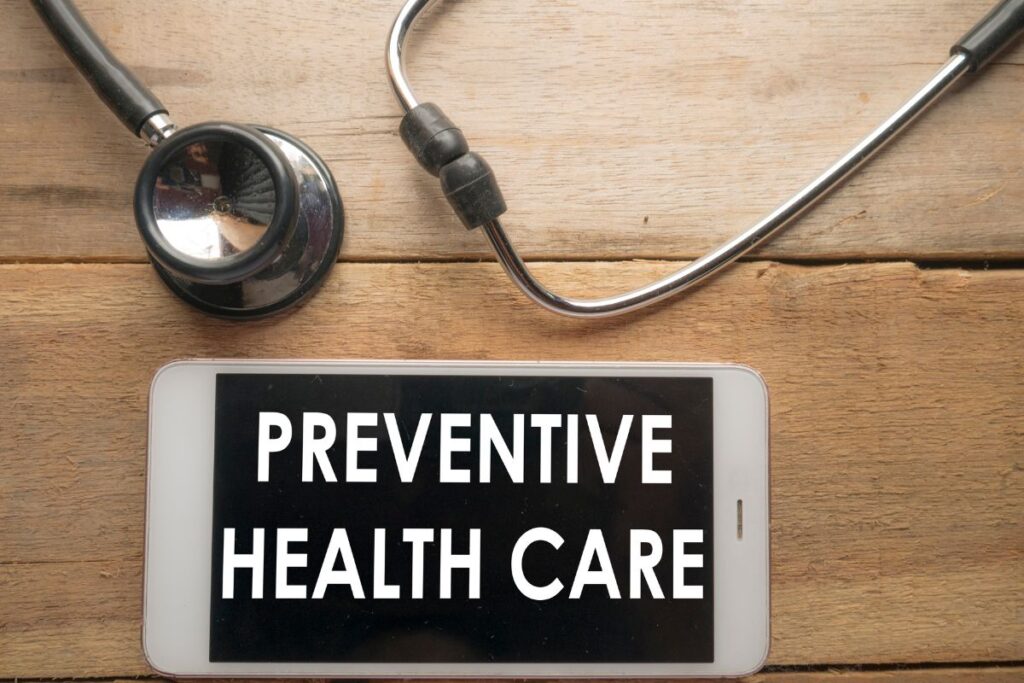Preventive health care is essential for maintaining optimal wellness and avoiding chronic diseases. By taking proactive steps, individuals can significantly improve their quality of life and reduce the risk of developing serious health conditions.
What is Preventive Health Care?
Preventive health care involves measures taken to prevent diseases, rather than treating them after they occur. This approach focuses on early detection, regular health screenings, vaccinations, and lifestyle modifications to promote long-term health and well-being.
Key Components of Preventive Health Care
Preventive health care encompasses a range of practices and interventions, including:
- Regular Check-Ups and Screenings Regular medical check-ups and screenings are crucial for early detection of potential health issues. These can include blood pressure checks, cholesterol tests, mammograms, colonoscopies, and more. Early detection often leads to more effective treatment and better outcomes.
- Vaccinations Immunizations play a vital role in preventing infectious diseases. Staying up-to-date with vaccines can protect you and those around you from illnesses such as the flu, measles, and COVID-19.
- Healthy Lifestyle Choices Adopting a healthy lifestyle is a cornerstone of preventive health care. This includes a balanced diet, regular physical activity, adequate sleep, and stress management. These habits can help maintain a healthy weight, boost the immune system, and reduce the risk of chronic diseases like diabetes and heart disease.
- Mental Health Care Mental health is an integral part of overall well-being. Regular mental health check-ups, stress reduction techniques, and seeking help for emotional issues are important components of preventive care.
Benefits of Preventive Health Care The benefits of preventive health care are numerous and far-reaching:
- Reduced Health Care Costs Preventive measures can help reduce long-term health care costs by avoiding expensive treatments and hospitalizations. Investing in regular screenings and a healthy lifestyle can save money and resources in the long run.
- Improved Quality of Life By preventing diseases and managing health conditions early, individuals can enjoy a higher quality of life. This includes better physical health, improved mental well-being, and increased longevity.
- Early Detection of Diseases Regular screenings and check-ups allow for the early detection of diseases, which can significantly improve treatment outcomes. Early intervention can often prevent the progression of diseases and reduce complications.
- Enhanced Productivity Healthy individuals are generally more productive and have fewer sick days. Preventive health care can lead to improved work performance and overall life satisfaction.
Tips for Implementing Preventive Health Care in Your Life Incorporating preventive health care into your daily routine can be simple with the following tips:
- Schedule Regular Check-Ups Make it a priority to schedule and attend regular medical appointments. Talk to your doctor about the recommended screenings and vaccinations for your age and health status.
- Adopt a Balanced Diet Focus on a diet rich in fruits, vegetables, whole grains, lean proteins, and healthy fats. Avoid processed foods, excessive sugar, and high-fat items. For more detailed insights into the importance of dietary fiber, read this comprehensive guide.
- Exercise Regularly Aim for at least 150 minutes of moderate-intensity exercise per week. Find activities you enjoy, such as walking, swimming, or yoga, to make physical activity a regular part of your routine.
- Get Vaccinated Stay informed about the recommended vaccines for your age group and health condition. Ensure you receive seasonal vaccines like the flu shot and any additional vaccines suggested by your health care provider.
- Practice Good Mental Health Engage in activities that promote mental well-being, such as meditation, journaling, and spending time with loved ones. Don’t hesitate to seek professional help if you are struggling with mental health issues.
- Stay Informed Educate yourself about preventive health care and stay up-to-date with the latest health guidelines. Reliable sources of information can help you make informed decisions about your health.
By prioritizing preventive health care, you can take control of your health and enjoy a longer, healthier life. For more information on preventive health care and how to implement it, visit this resource on Mayo Clinic.

